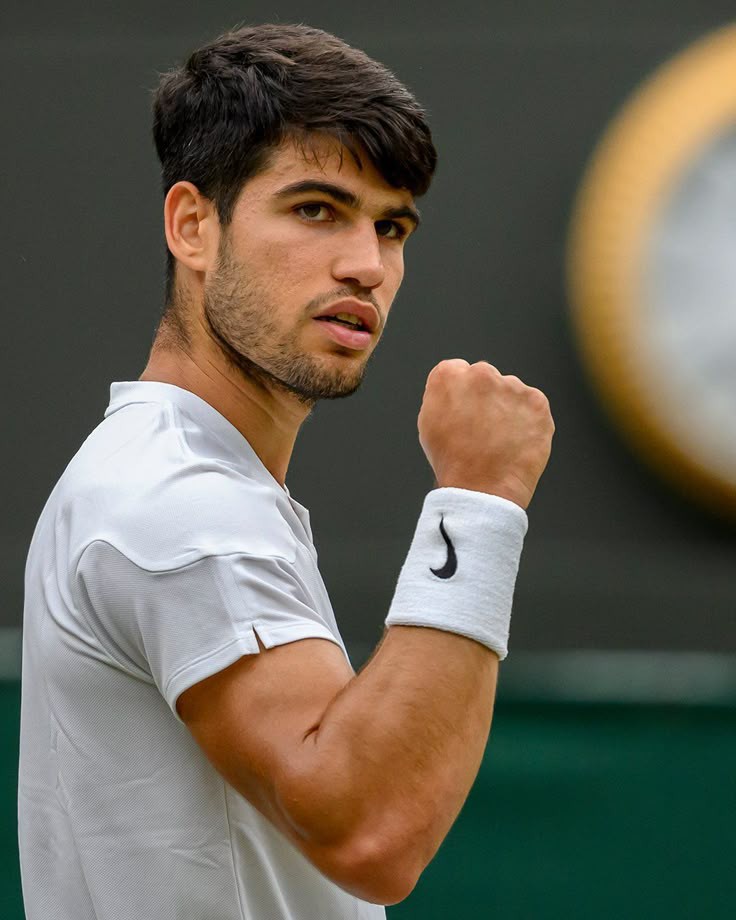Carlos Alcaraz, one of the brightest young stars in the world of tennis, has just signed a groundbreaking contract extension that has sent shockwaves through the sports world. The new deal, worth a staggering $957 million, not only secures his place among the top earners in sports but also signals a new phase in his career—one that positions him as a key figure not just on the tennis court but in the leadership of the sport itself. This article delves into the details of Alcaraz’s historic contract, what it means for the future of tennis, and how this milestone is indicative of the ongoing transformation within the sport.
A New Contract, A New Legacy
Carlos Alcaraz’s journey to this monumental contract extension has been nothing short of meteoric. At just 21 years old, the Spanish tennis sensation has already accomplished feats that many professionals only dream of achieving in their entire careers. From clinching his first Grand Slam title at the US Open to becoming the youngest player to reach world number one, Alcaraz’s rise to the top has been a spectacle.
The new $957 million contract extension is more than just a financial win for Alcaraz; it’s a recognition of his growing influence both on and off the court. With this historic extension, Alcaraz has become the face of a new generation of tennis players—one that is primed to challenge the dominance of older legends like Rafael Nadal, Novak Djokovic, and Roger Federer. The contract not only locks him in as one of the most marketable athletes globally but also aligns him with the future of tennis, a sport increasingly reliant on brand power and global appeal.
This remarkable deal underscores the transition in professional tennis. Where once the sport was governed by a small group of iconic players, Alcaraz’s rise to prominence marks a shift toward a new era. The multi-million dollar deal highlights a new business model in tennis, one where the top players are not just athletes but global brands, with vast commercial and cultural influence that transcends the sport itself.
Alcaraz’s Role as Team Captain: A New Leadership Chapter
In addition to the financial terms of his new deal, Alcaraz has also signed on to serve as a team captain for the upcoming seasons, a role that is equally significant in the context of his career development. Team events like the Laver Cup, the Davis Cup, and the ATP Cup are becoming increasingly important in the tennis calendar, and Alcaraz’s leadership role will allow him to influence the future direction of the sport from a strategic standpoint.
The role of a team captain is not one that many tennis players are afforded, particularly at such a young age. However, Alcaraz’s maturity, tactical intelligence, and on-court charisma make him an ideal candidate to lead teams in these prestigious events. His ability to inspire others, combined with his exceptional skill set, will make him a formidable captain.
By taking on the mantle of team captain, Alcaraz will not only shape the competitive dynamics of team-based events but also mentor the next generation of players. His experience in high-pressure situations, from Grand Slam finals to team competitions, will be invaluable in helping younger players navigate the complex psychological and emotional challenges of international competition.
Impact on the Tennis World: Breaking Boundaries
One of the most remarkable aspects of Alcaraz’s new contract is how it signals a major shift in the way tennis operates both commercially and competitively. While much of the attention in tennis has historically focused on individual achievements, team-based events are becoming increasingly important. The growth of events like the Laver Cup and the Davis Cup, where national and continental pride is on the line, is helping to grow the sport in ways that were previously unimagined.
Alcaraz’s role as team captain in these events marks an evolution in the sport, where individual success is no longer the sole metric of greatness. Instead, players are now asked to step up as leaders, motivating and guiding their teammates in high-stakes, emotionally charged matches. In this way, Alcaraz is poised to be at the center of the sport’s transformation into a more team-oriented, cooperative environment.
In terms of commercial success, Alcaraz’s deal serves as an example for future players looking to break through both financially and in terms of marketability. Alcaraz’s name recognition, aided by his success on the court and his leadership roles, will undoubtedly open new doors for him as he continues to build his brand. His appeal goes far beyond the traditional tennis fan base, reaching new audiences in other sports and industries.

